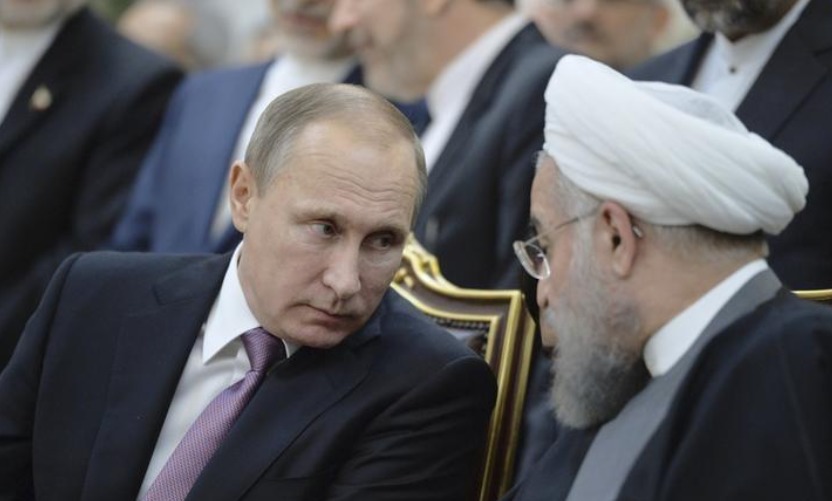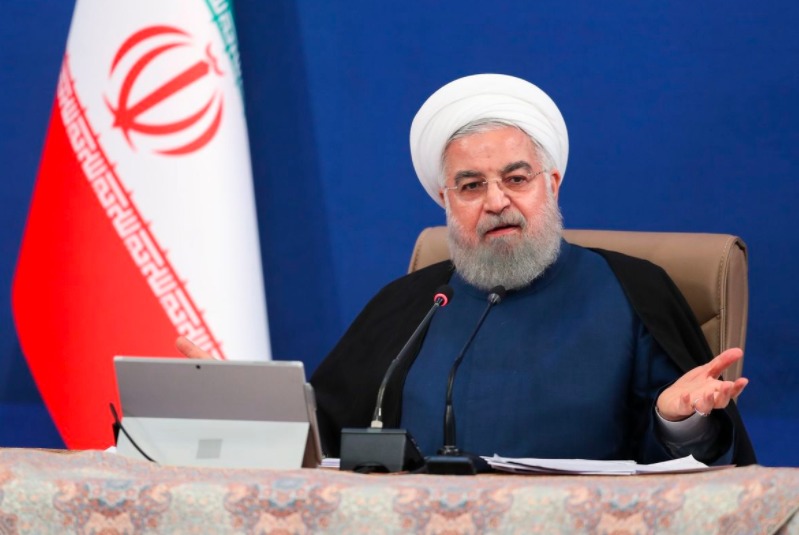Commentary: Putin’s Middle East gamble is paying dividends - Amir Handjani
Vladimir Putin has made an art of turning weakness into strength. As Russian and Syrian forces pound Aleppo in the biggest assault of Syria’s five-year civil war, the Russian president clearly has emerged as a dominant force in the Middle East. Two years ago Russia had virtually no presence in the region, aside from a naval base in Syria. Today Moscow’s fighter jets and missiles fly over Syrian, Iranian and Iraqi airspace.

Over the last year, Putin has inserted Russia into the Syrian conflict and shored up the regime of President Bashar al-Assad as it was on the verge of collapse. The Russian leader has forged a quasi-military alliance with Iran that has allowed him to project power in the Persian Gulf – something that has evaded Moscow since the end of World War Two.
If that wasn’t enough, Putin’s relationship with Turkey, which seemed to be on a collision course after Ankara downed a Russian fighter jet last year, has now warmed to the point where Putin and Turkish President Tayyip Erdogan are about to restore full diplomatic relations. All the while Putin has maintained a close and productive relationship with Israeli Prime Minister Benyamin Netanyahu.
How is Putin able to maneuver the shifting sands of the Middle East so effectively and forge ties with countries that are seemingly at odds with each other? Why has Russia been more effective than the United States in furthering Moscow’s own agenda in the region?
Putin is able to quickly identify Russia’s foreign policy interest in a given conflict and commit resources to it – and then abruptly change course once Moscow’s core interest has either been met or has changed.
Since the 1979 Islamic Revolution in Iran, the United States has aligned its interest in the Persian Gulf with Sunni monarchies such as Saudi Arabia, Kuwait and Qatar. In turn, these countries have invested heavily in the United States – from buying U.S. debt, to investing in real estate and buying billions of dollars in American military hardware.
Arab states have also invested heavily in Washington, buying influence in the corridors of power, funding think tanks and hiring public relations firms to help spread a narrative about why their countries are essential to America’s interest in the Middle East. The relationship between Riyadh and Washington remains particularly strong even as the American public questions the logic behind an alliance with a country whose actions often run counter to Washington’s interests.
These countries feel that Washington is obligated to share their view of the Middle East, which means backing them regardless of whether any conflict they engage in is against the interest of the United States. They have no such influence in Moscow. Even as Moscow backs Shi’ite powerhouse Iran and the Assad regime in Syria, Sunni Arab leaders continue to court Putin and look for ways to collaborate with him. Saudi Arabia, for example is currently trying to coordinate with Moscow on how best to stabilize oil markets and want Putin to pressure Iran to do the same.
Russia’s partnerships are based on cold, hard realism. Putin’s sole aim is to further Moscow’s interest. He’s unburdened by a legacy of alliances that do not serve Russia’s strategic aims. He supports Damascus, Tehran and the Shi’ite government of Iraq because he views Sunni extremism as a long-term threat that has destabilized countries in the Middle East, and which he fears could wreak havoc in countries close to Russia’s borders. Yet this coordination and collaboration with Shi’ite Iran doesn’t preclude him from working with Sunni Arab states to promote trade for Russian industry and its atomic energy program.
Putin is doing all of this while remaining close to Netanyahu. Even though Putin is working with Syria and Iran – Israel’s mortal enemies – he has convinced Netanyahu that these alliances are not meant to threaten Israel’s existence, but rather serve a larger purpose of defeating Sunni extremism. Russia continues to cooperate with Israel in diverse fields such as energy, agriculture and arms. Russia and Israel also maintain close military contacts and Putin is careful not to transfer offensive weapons to Israel’s foes.
Juxtapose this with how Netanyahu treated Obama and interferes in U.S. domestic politics. In the run-up to the Iran deal, Netanyahu used the influence of AIPAC and other pro-Israel lobbying organizations to try and undermine a sitting president and scuttle his signature foreign policy achievement.
If Israel or another U.S. ally tried to interfere or challenge Putin in such a manner, it’s difficult to imagine that he would reward them with $38 billion in aid for ten years, as Obama has done with Israel, or continue to support them militarily with advanced weapons and intelligence – as Washington has done with Saudi Arabia.
Even though the United States is a far greater power and should have more influence on the policies of junior partners such as Saudi Arabia and Israel, the inverse happens: they often work to limit Washington’s strategic options for fear of abandonment or for their own self-interest.
As long as Russia has a more nimble and opportunistic approach to the region, Washington will have a hard time confronting it – and Moscow’s influence will continue to grow.
Articles from Amir Handjani
View blog
Iran unleashed an angry broadside this weekend reacting to the establishment of formal diplomatic re ...

The Trump administration is moving ahead with its ban on the popular Chinese apps WeChat and TikTok ...

Last month, six weeks after implementation of the Iranian nuclear accord, parliamentary elections ga ...
You may be interested in these jobs
-
Intern
Found in: Talent US C2 - 3 days ago
Nutrien Warren, United StatesAt Nutrien, our purpose is Feeding the Future and we do so with safety, inclusion, integrity and results as our core values. Nothing is more important than sending our people home safe, every day. · Nutrien Ag Solutions is the retail division of NutrienTM, the largest crop inpu ...
-
Travel Nurse
Found in: Talent US A C2 - 6 days ago
Medical Talent Saratoga Springs, United StatesMedical Talent is seeking an experienced Emergency Room Registered Nurse for an exciting Travel Nursing job in Saratoga Springs, NY. Shift: 3x12 hr nights Start Date: 04/29/2024 Duration: 13 weeks Pay: $ / Week About Medical Talent: · Medical Talent is a distinguished company th ...
-

Medical Consultant
Found in: Jooble US O C2 - 4 hours ago
Knewin McLean, VA, United StatesCompany Overview We are a world-class team of professionals who deliver next generation technology and products in robotic and autonomous platforms, ground, soldier, and maritime systems in 50+ locations world-wide. Much of our work contributes to innovative research in the field ...

Comments